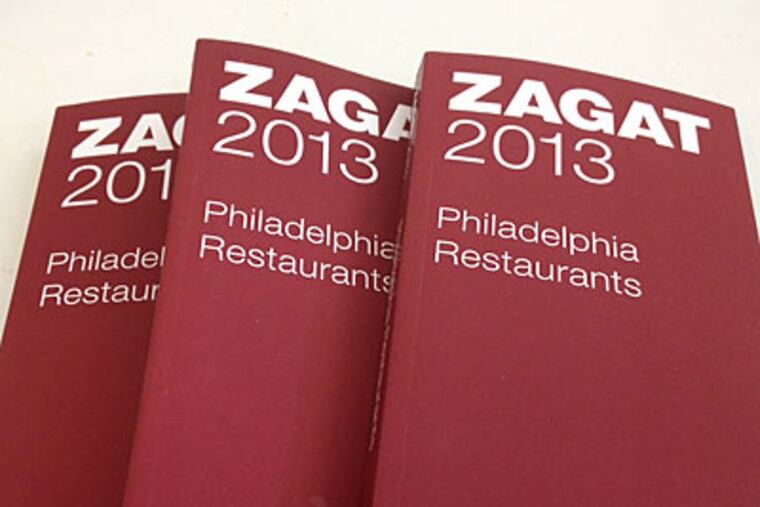How Google almost destroyed Zagat
Restaurant guide The Infatuation has announced it was buying the Zagat brand for an undisclosed amount.

It's hard to imagine anyone could make the name Zagat obsolete in the world of restaurant news. Yet Google almost pulled it off in just under seven years.
On March 5, nine-year-old restaurant guide The Infatuation announced it was buying the Zagat brand for an undisclosed amount. The company—best known for its #eeeeeats hashtag—now controls the 35-year-old Zagat name and its international catalog of reviews.
For some, the question isn't why Google sold off Zagat; it's what took so long. The relationship between the two companies had been troubled for years. The 2011 purchase was championed by former Google executive Marissa Mayer, who saw Zagat as an asset for the maps division she controlled. But by 2013, some reviewers panned the release of the Zagat app, which had a difficult user interface and seemed designed to push content like "Rose for Every Mood: What to Bring to Any Summer Occasion" rather than help people find a good place to eat.
Then a few years ago, Google chose to infuse its mapping services with features such as user-generated restaurant reviews rather than leveraging Zagat and its resources. It was a defensive move to ward off rivals such as Yelp and Apple, which were, at the time, credible threats to Google's dominance in local information. Zagat, meanwhile, was left to wither.
How did this happen? When Mayer departed in 2012, Zagat was left without an internal champion at Google, according to a former Zagat contractor who requested anonymity. Instead of hiring more full-time staff, Google relied on contractors for content and assigned a minimal number of engineers for major projects like the app launch and a 2017 web redesign, according to several people who worked for Zagat at the time. Over time, the number of contractors working on Zagat content decreased—there were just over a dozen to cover the globe—and coverage of notable cities such as London and Toronto was suspended.
Google declined a request for comment.
Eventually, the staff was told to de-emphasize reviews, which were the backbone of the business. Instead, employees were directed to focus on boilerplate guide lists, such as "Best Brunch" and "Best After Work Drinks." The changes left the remaining staff frustrated, according to the former contractor.
Tim and Nina Zagat founded their eponymous guide as a hobby in 1979. The couple, having met at Yale Law School, started the business after a guest criticized a newspaper's restaurant reviews at a dinner party. The Zagats began asking friends' opinions and found 200 amateur critics to rate 100 restaurants for food, decor, service, and costs. An empire was born, and for years the Zagat guide was part of the calculus of figuring out where you were going to eat.
Those days are long gone. By 2017, Zagat failed to even send out its annual survey—the basis for its restaurant rankings. No guide was produced, and no explanation was given.
Zagat freelancers weren't notified of the The Infatuation deal beforehand, according to a current contractor who requested anonymity. Instead, they were told on Friday night that security was being updated and they would be locked out of Zagat tools, the contractor said. By Monday morning, they got the press release.
The Infatuation didn't respond to a request for comment. In a statement, the site said it will operate Zagat as a separate brand, with a new, tech-driven platform that will be an alternative to other crowdsourced restaurant reviews.
In October, Google held its second Local Guides Summit in San Francisco. The program encourages users of the company's Maps app to upload photos and write reviews of places such as restaurants, and submit new locations. During the summit, Google announced that 50 million people were contributing to the program, a 1,000 percent increase from the 5 million it tracked in early 2016. More than 700,000 venues are being added to Maps each month, according to the company. Maps has more than 1 billion users, making it a lot more efficient and broader than Zagat's restaurant-review system.
"I assume Google figured out that they didn't need the brand name in order to surface the information," said restaurateur Nick Kokonas, whose Alinea dining room topped the list in the 2012 Chicago Zagat guide. "At the end of the day, Google can get all that Zagat information without actually owning Zagat, right?"
With assistance from Mark Bergen.